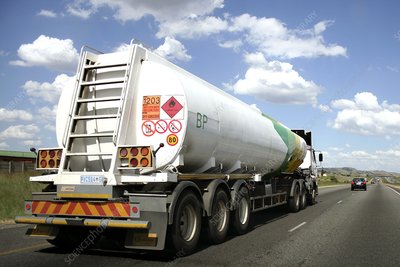The landing cost of imported petrol has skyrocketed to over N1,000 per litre as Nigeria’s foreign exchange crisis worsens, according to investigations conducted by BusinessDay.
At the prevailing black-market exchange rate of N1,500 per dollar, data indicates that the landing cost of petrol, encompassing the product’s international price, shipping, insurance, and associated expenses, surged to N1,009 per litre from N720 per litre recorded in October 2023.
“A significant factor driving the escalating landing cost of petrol is the deepening FX crisis. Subsidies have been introduced to alleviate the burden on most Nigerians who cannot afford the market price for petrol,” revealed a senior executive in the downstream sector.
Following Monday’s trading session, the naira experienced a 4.19% depreciation against the dollar, with one dollar exchanging for N1,534.39 compared to N1,469.97 on Friday, as per data from the Nigerian Autonomous Foreign Exchange Market (NAFEX) managed by the FMDQ.
The parallel market, commonly known as the black market, also witnessed a 1.33% depreciation of the naira. The dollar traded at N1,505 on Monday, a rise from N1,485 on Friday.
Acknowledging the reduction in subsidy, Bismarck Rewane, CEO of the Financial Derivatives Company, remarked, “If the subsidy has been removed, then the price of PMS as you see it today will be much higher than what it is.”
Aisha Mohammed, an energy analyst at the Lagos-based Centre for Development Studies, emphasized that the government was partially subsidizing the commodity for political, social, and economic reasons, despite calls for complete subsidy removal.
Further investigation revealed that the landing cost of N1,009 excludes charges from the Nigerian Ports Authority, vessel charges, the Nigerian Maritime Administration and Safety Agency, and other distribution costs, some of which are denominated in dollars.
Efforts to confirm whether the federal government has reinstated petrol subsidies were unfruitful as Olufemi Soneye, NNPC’s Chief Corporate Communications Officer, did not respond to inquiries.
President Bola Tinubu had declared the removal of petrol subsidy during his inaugural speech on May 29, 2023, a move effectively implemented by the NNPC the following day.
With state-owned NNPC resuming sole petrol importation since October, after marketers halted operations due to increased oil prices and naira depreciation, the government pledged to reinvest subsidy gains into critical sectors. However, public transparency regarding fund allocation remains minimal.
As petrol prices continue to surge, exacerbated by currency devaluation and rising costs, the challenge of convincing Nigerians to accept further price hikes looms large, especially amidst concerns over the utilization of subsidy savings.










